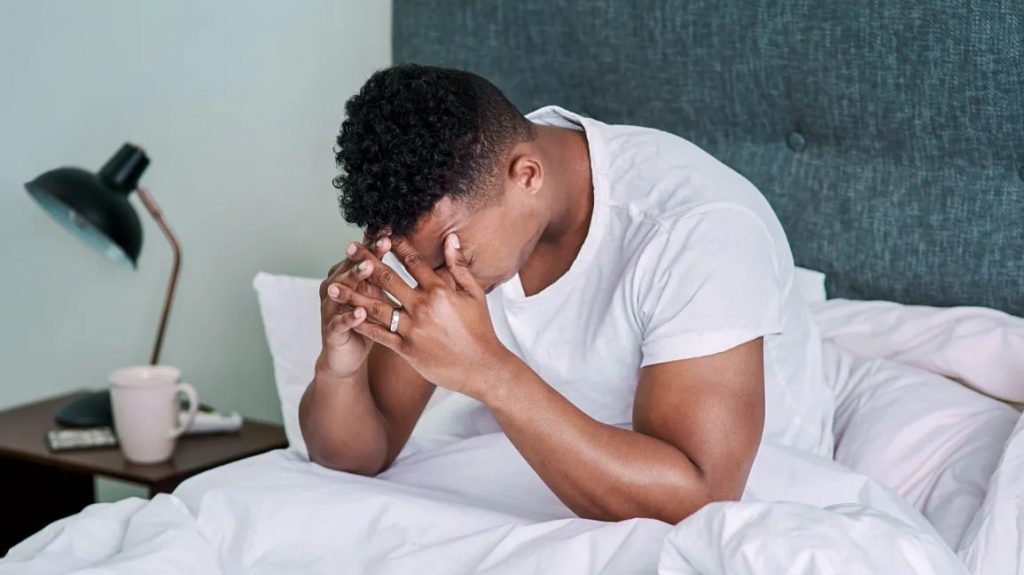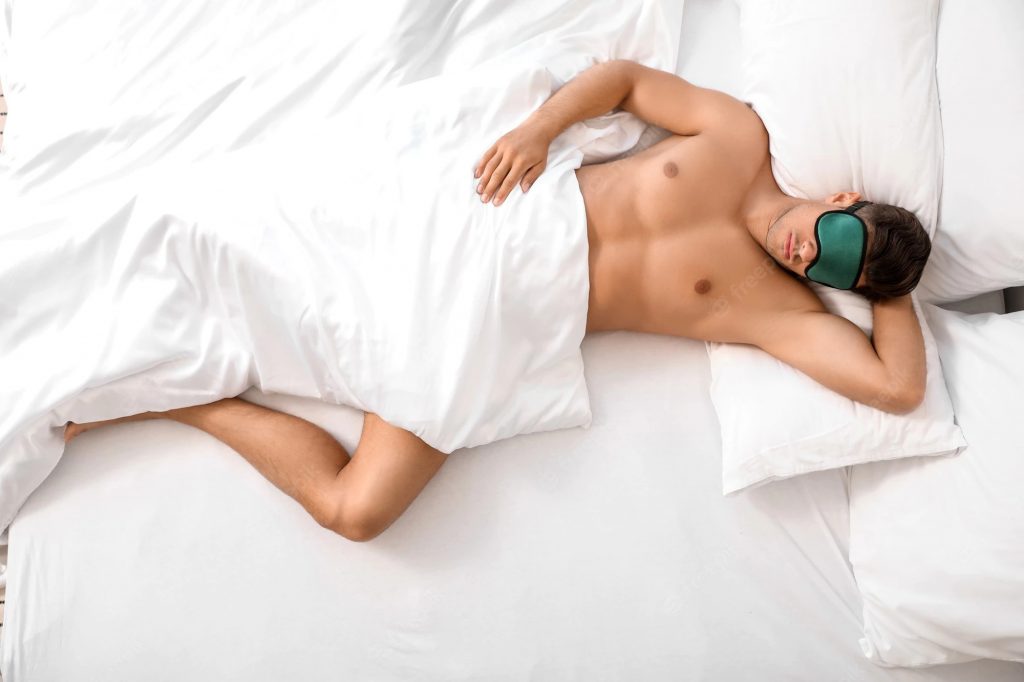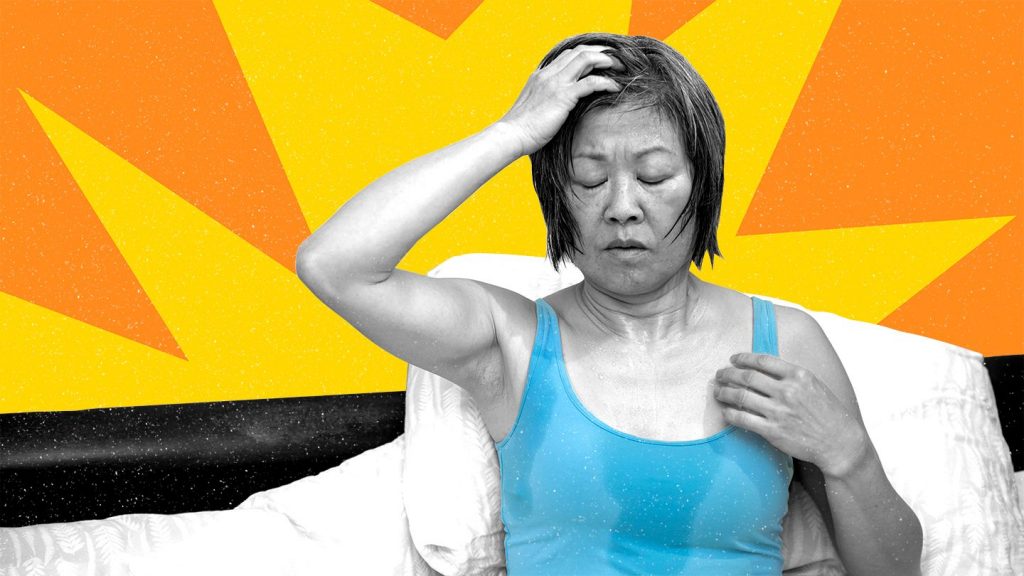Sweats are the most unpleasant thing of all, and if they are night sweats, they are even more annoying. Everyone deserves a good night’s sleep, and nobody wants to disturb it by becoming drenched in the middle of the night. However, if you are one of those guys who wakes up in the middle of the night soaked in sweat, regardless of the season, then yes, there may be a concern.
Have you ever woken up sweating a lot, with sheets and pajamas that were wet to the point of dripping? If it happens once or twice and then stops for no clear reason, you can casually ignore it. But if it happens often, or you may have night sweats, which are a lot more than usual while you sleep, it is ringing the bells, and time to revisit your family physician.
Finding the source of your night sweats is harder than figuring out whether you are experiencing them. People may experience this unsettling, disruptive sleep symptom due to a variety of factors, some of which could be benign and others which could be serious. Everything you need to know about night sweats, including their symptoms, causes, and treatments, is provided in this article.

Are night sweats a sign of impending illness?
The sensation of night sweats can vary from person to person. But often, they are more severe than simply being in a warm room, and they occur repeatedly throughout time (and sometimes even on the same night).
Typically, night sweats start unexpectedly, last for a short time, and are followed by chills. It can feel like a buildup and burst of heat, an adrenaline rush, a wave of hot feelings, and so on. However, other people won’t experience them at all; those that are in the same room may be your spouse or any other family members.
Many times, you may not be aware unless the person sleeping with you mentions it to you, especially if you are in deep slumber or have a sound sleep. Finally, when you feel too uncomfortable, you wake up from sweating, perhaps unconsciously, as you might feel uncomfortable and sticky moisture when you do.
If you sweat less at night, it’s less likely that a disease or infection deep in your body will show up. However, “severe, perspiration-producing sweats should raise an alarm for further assessment,
Why do you sweat at night?
Experts concur that there are numerous causes of nocturnal sweats. Here are some of the more typical causes of night sweats, which can be brought on by everything from menopause to cancer.
#Ailment conditions
Night sweats can be brought on by a number of medical disorders, including cancer. It may be symptom of some infections, such as the flu, which can also cause other symptoms, including fever. Anxiety and stress are other causes of night sweats, and mental health disorders can also be a factor.
#Hormonal problems
Nighttime sweating can be caused by endocrine conditions like thyroid illness and diabetes, as well as menopausal hot flashes. A family medicine specialist in Mumbai, India, says that changing hormone levels in the body are a common cause of night sweats.
#Certain medicines
Medications. Some prescription drugs may cause night sweats. A typical class of medication that might cause night sweats is an antidepressant. Often it affect between 8 and 22 percent of antidepressant users. Night sweats have also been directed towards some other psychiatric drugs. Aspirin and acetaminophen, two drugs used to treat fever, can occasionally cause perspiration.
Medicines like antidepressants, blood pressure medications, steroids, and even common over-the-counter medicines like aspirin and Tylenol, among many others, have an adverse effect on nocturnal sweating.
#Life style choices
Even though idiopathic hyperhidrosis is not necessarily brought on by lifestyle choices, eating spicy food, drinking a hot beverage or alcoholic drink before bed, or even having a steamy shower can produce night sweats. It’s crucial to remember that actual night sweats can be difficult to tell and can be distinguished from flushing, which is a warmth and redness of the face or torso.
#Menopause.
Menopause-related hot flashes in women might happen at night and make you sweat. This is a pretty typical reason why women have nocturnal sweats. Menopause changes the rhythm of the body and severely affects normal body functions, leading to nighttime sweats
#Idiopathic excessive sweating

Idiopathic hyperhidrosis is a medical condition in which the body sweats too much all the time for reasons unknown. The term “idiopathic” refers to a condition for which there is no known reason.
#Infections
The infection most frequently linked to nocturnal sweating is tuberculosis. But bacterial illnesses like abscesses, endocarditis (inflammation of the heart valves), and osteomyelitis (inflammation of the bones) can also cause night sweats. Additionally, It can be are a sign of HIV infection.
#Cancers
Some cancers have early warning signs, such as night sweats. Lymphoma is the cancer type most frequently linked to nocturnal sweats. People with cancer who haven’t been diagnosed often also lose weight and get fevers for no reason.
#Hypoglycemia
Sweating can be brought on by low blood sugar. medically referred to as hypoglycemia. Those who use insulin or oral diabetes medicines may experience hypoglycemia at night and perspiration.
#Hormone problems
Several hormone abnormalities, such as pheochromocytoma, carcinoid syndrome, and hyperthyroidism, can cause sweating or flushing.
#Neurological disorders
Neurological conditions like autonomic dysreflexia, posttraumatic syringomyelia, stroke, and autonomic neuropathy or even diabetic neuropathy can sometimes make you sweat more and wake you up sweating at night.
What is the remedy for night sweats?
Your doctor will take steps to find and treat the underlying cause of your night sweats. Your precise diagnosis will determine your treatment strategy. The following are typical reasons for night sweats and their remedies:
Avoid drinking alcohol befeoore hitting the bed and sleep in a cool room. You may be able to stop having hot flashes and and control having night sweats to a certain extent if not fully.
Night sweats may also be managed with hormone therapy or other ayurvedic medicines since these therapies can help reducing body heat in a significant way like consumption of curd or indian sattu keeps your body cool and prevent you from having night sweats.
Your doctor might advise using antidepressants or anxiety medications. They might also suggest certain meditation techniques.
Drinking lots of water to avoid dehydration while sleeping with the air conditioning or a fan on might be of some help and reduce sweating to a certain extent.
Using clinical-strength antiperspirant on areas like the underarms, hands, groins, feet, and hairline before going to bed may give you great relief,
Having a healthy diet low in sugar and fat, more leafy vegetables and fruits and getting treatment for any underlying medical conditions may come as your rescue.
For an ongoing chronic therapy, your doctor may adjust your dosage or recommend a different medication. if that happens to be the reason of the night sweat syndreome.
Abstaining from drinking coffee, or eating spicy and oily food before going to bed may give you great relief. Limiting or staying away from these things may help to lessen night sweats.
A person should only take anticholinergic agents—a class of drugs that can help reduce sweating—if a doctor advises it.
Your doctor might also suggest that you change your sleeping patterns. You can stop and treat night sweats by taking off your blankets, putting on lighter pajamas, or opening a window in your bedroom. If you are alone you may ty to sleep with out your cloths in nude, if that is comfortable to you. Finding a cooler area to sleep in or using a fan or air conditioning may also be helpful.

When should you speak with a doctor?
Typically, night sweats are not a cause for alarm. But occasionally, they could be a symptom of a more serious illness that needs to be treated.
In menopause, which typically begins around age 50, night sweats are prevalent. But you should see your doctor right away if you have night sweats or other signs of menopause before you turn 40. Primary ovarian insufficiency may be present in this case.
Also, you should see a doctor if your night sweats start to happen often, if they keep you from sleeping, or if they come with other symptoms. A dangerous medical condition may be present if you experience night sweats along with a high fever, a cough, or unexplained weight loss.
Night sweats may be a sign that lymphoma or HIV is getting worse in a patient. Check it out if there are any other indications for HIV for prevention is always better than cure.
What causes night sweats in females?
Women may experience night sweats due to any of the factors mentioned in the previous section. The problem typically arises when hormones are changing, for example:
Pregnancy immediately following giving delivery, in which case the doctor may refer to “postpartum night sweats,” menopause, which frequently causes night sweats and hot flashes
Discussing nocturnal sweats with a doctor is especially advisable if the sweating: Extreme frequency fluctuations hurt the quality of sleep, and management techniques aren’t enough to solve the problem.

What makes night sweats in men’s
Males can be impacted by the factors mentioned in the prior section. Man are by far more prone to be effected by nightsweats than wemen for reasons not much clear till date. According to a reliable source, men go through a form of menopause where their testosterone levels start to decline around midlife.
A sign of hypogonadism, or low testosterone levels, is excessive perspiration. In men 45 and older, a 39% trusted source of testosterone is possible. As a result, they could also get nocturnal sweats. There doesn’t seem to be much evidence, though, to back up this assertion. A doctor may suggest hormone therapy or do tests to find out why a person sweats. in such a case.
Conclusion
Night sweats are a common problem. They might not seem like much, but they can make it hard to sleep, which lowers the quality of life. Night sweats might occasionally indicate a health problem that needs to be addressed.
It might be good to sleep in a cool room and wear light pajamas and bedding made of natural cotton. If not, a doctor can suggest alternative methods, which might involve medication.
The doctor may alter the prescription or the dosage if sweating is a side effect of the drug. If sweating is excessive, worrisome, or accompanied by other symptoms, get medical attention.
Disclaimer: This information is for educational purposes only, and no medical advice should be inferred from it. Before changing your diet or adding supplements, please talk to your doctor.
The author’s views are his or her own. The facts and opinions in the article have been taken from various articles and commentaries available in the online media and Eastside Writers does not take any responsibility or obligation for them.
Note: Contact our Writers at www.eastsidewriters.com for writing Blogs/Articles on any niche. We have experts in various domains from Technology to Finance and from Spirituality to Lifestyle and Entertainment.







Pingback: The Power of Estrogen - Unveiling the Surprising Benefits and Risks of the Hormone - Eastside Writers